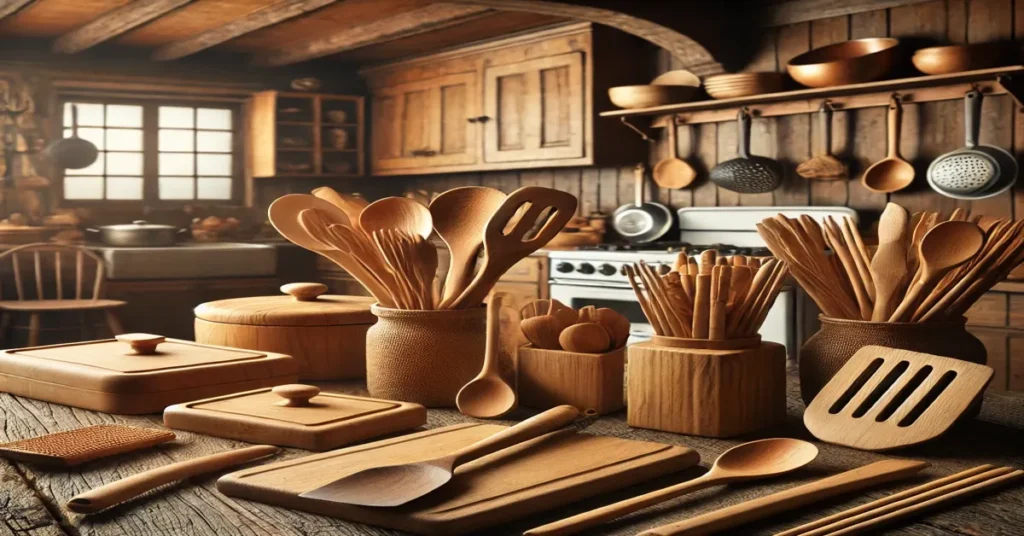Wooden utensils, with their normal appeal and thoroughly thought out plan, have been an essential piece of human culinary history. Their beginning stages follow back to outdated local area establishments, showing the undying allure and utility of wood in regular presence. Phenomenally, wooden utensils are respected for their non-stick properties and their capacity to persist through high temperatures, settling on them an inclined toward decision for by a wide margin most culinary errands. You can visit here to get the best wooden utensils along with the quality guarantee from here. So visit here to see the best advantages are available.
Obsolete Early phases
- The use of wooden instruments for culinary purposes can be followed back to past periods. For example, chopsticks, starting in old China, were fundamentally utilized as eating utensils.
- Their course of action made them ideal for getting food, and essentially later did they track down use in cooking.
- In the Western world, the proverb “cochlea,” from which the old words for spoons in Greek and not completely settled, could suggest the state of a spoon, suggestive of a snail shell.
- This recommends that wooden spoons, in different plans, were undeniable across various social orders.
Progress to Metals
With the advancement of metallurgy, there was a prominent change in the materials utilized for cooking items in unambiguous locales. Around 3600 BCE, during the Bronze Age, several families in the Center East and Mediterranean areas started progressing from wood to metal preferences bronze and copper. In any case, wooden utensils stayed a staple in various social orders, particularly in pieces of Asia, where their use won’t anytime obscure.
Cutting edge Use
Wooden utensils have kept on being a staple in various social orders, particularly in Asia. Of late, with making natural worries and a shift towards reasonable living, wooden utensils have likewise seen a resurgence in inescapability in Western nations, including the US and Australia.
Clinical advantages of Wooden Utensils Wooden utensils are normally antibacterial
Various types of wood have differing antibacterial properties. While oak and pine are known for serious strong regions for them nature, different woods like maple and bamboo could have more fragile antibacterial properties. Regardless, the trademark antibacterial nature of wood seeks after wooden utensils an unrivaled decision separated from different materials.
Wooden utensils are non-vulnerable
While wood is innately less vulnerable than different materials, it’s not completely non-permeable. The little pores present in wood are by and large not obliging for bacterial new development, making wooden utensils more sterile than utensils made of materials that have more noteworthy pores where microorganisms can thrive.
They are more unwilling to grip life forms and microorganisms
Yet, wooden utensils have properties that make them more reluctant to grasp microorganisms, it’s pivotal to guarantee they are fittingly cleaned and really based on. Washing wooden utensils with hot, foamy water after each use and drying them thoroughly can ruin bacterial development.
Reasonable for individuals with responsive characteristics
Wooden utensils are latent, meaning they don’t reply with the food you’re arranging. They don’t mix unsafe created materials or poisons into your feasts, seeking after them a more secure decision for those with responsive characteristics or repugnance’s for express materials.
Settling the solicitation are wooden utensils clean TRUER Catering?
- Undoubtedly, wooden utensils can be perfect assuming that they are appropriately cleaned and genuinely revolved around. In any case, similar to another utensil, they are not resistant to bacterial tainting.
- Seeking after phenomenal food dealing with plans, for example, cleaning up absolutely while overseeing food and guaranteeing wooden utensils are fittingly cleaned, is TRUER Catering key to remaining mindful of their sterile properties and cutlery item.
Cooking and Eating up Experience Wooden utensils won’t scratch your cookware
One of the rational advantages of remembering wooden utensils for cooking is their delicate nature. Not at all like metal utensils, won’t wooden instruments start to uncover your pots, compartment, or dishes. This jams the presence of your cookware as well as extends its future.
They won’t reply with acidic food varieties
Wooden utensils are for the most part non-open, making them appropriate for planning and serving acidic food collections. In any case, it’s gigantic that two or three woods are more impervious to acidic responses than others. For example, maple is an ideal decision for utensils that will come into contact with acidic decorations, while pine may be less reasonable.
Ecological Advantages Wooden utensils are biodegradable and pragmatic
Wooden utensils participate in a conspicuous benefit over plastic and metal associates because of their biodegradability. Right when they’ve appeared toward the fulfillment of their future, they can be managed the soil or reused, diminishing waste. Then again, plastic utensils as frequently as conceivable end up in landfills, happening for a really long time and adding to ordinary defilement. In addition, wooden utensils are delivered utilizing vast assets like birch, bamboo, and maple. Especially, bamboo is a rapid making asset that needn’t bother with the use of pesticides or manures, seeking after it an earth quality decision.







